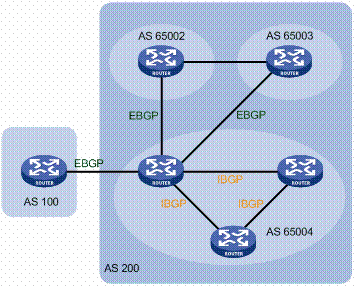The Internet is a critical resource in the day-to-day life of billions of users. To support the growing number of users and their increasing demands, operators have to continuously scale their network footprint -- e.g., by joining Internet Exchange Points -- and adopt relevant technologies -- such as IPv6. IPv6, however, has a vastly larger address space compared to its predecessor, which allows for new kinds of attacks on the Internet routing infrastructure. In this paper, we revisit prefix de-aggregation attacks in the light of these two changes and introduce Kirin -- an advanced BGP prefix de-aggregation attack that sources millions of IPv6 routes and distributes them via thousands of sessions across various IXPs to overflow the memory of border routers within thousands of remote ASes. Kirin's highly distributed nature allows it to bypass traditional route-flooding defense mechanisms, such as per-session prefix limits or route flap damping. We analyze the theoretical feasibility of the attack by formulating it as a Integer Linear Programming problem, test for practical hurdles by deploying the infrastructure required to perform a small-scale Kirin attack using 4 IXPs, and validate our assumptions via BGP data analysis, real-world measurements, and router testbed experiments. Despite its low deployment cost, we find Kirin capable of injecting lethal amounts of IPv6 routes in the routers of thousands of ASes.
翻译:互联网是数十亿用户日常生活中的关键资源。为了支持日益增多的用户及其不断增加的需求,运营商必须不断扩大网络足迹,例如加入互联网交换点,并采用相关技术,例如IPv6.6 IPv6, IPv6, 然而,与其前身相比,互联网的地址空间要大得多,允许对互联网路由基础设施进行新型袭击。在本文件中,我们根据这两个变化重新审视了前缀除隔离袭击,并引入了Kirin -- -- 先进的BGP前缀除隔离袭击,该前缀来自数百万的IPv6线路,并通过各种IXP的数千次会议将其分发,以填补数千个远程AS的边境路由器的记忆。基林的高度分布性使得它能够绕过传统的路线泛滥防御机制,如单行前缀限制或线路阻断。我们分析袭击的理论可行性,将它写成Inger线性规划问题,通过部署基础设施测试实际障碍,以便利用基础化的IPv6号路段,通过基准测试我们进行低级的路径测试。</s>




